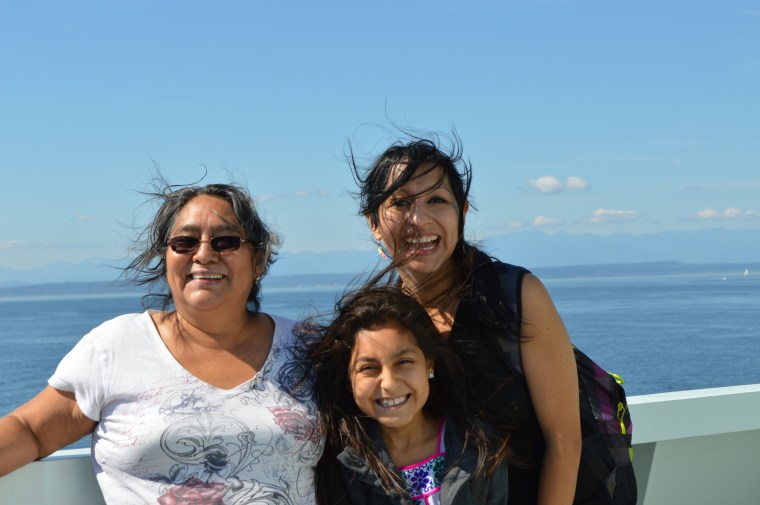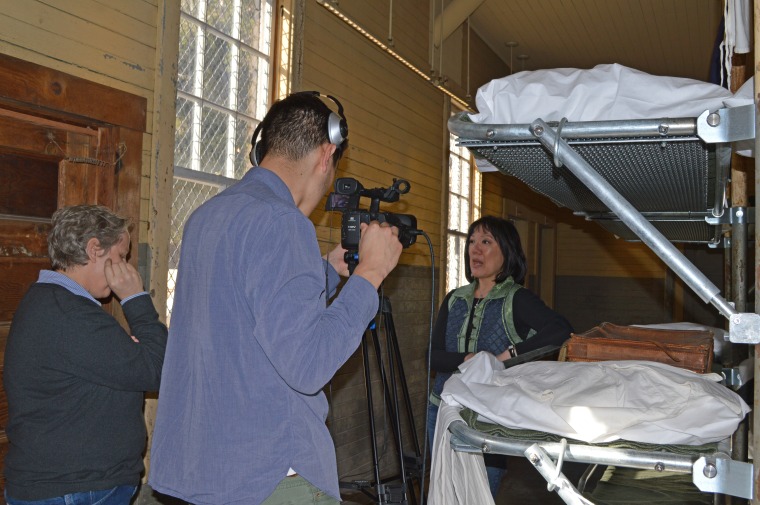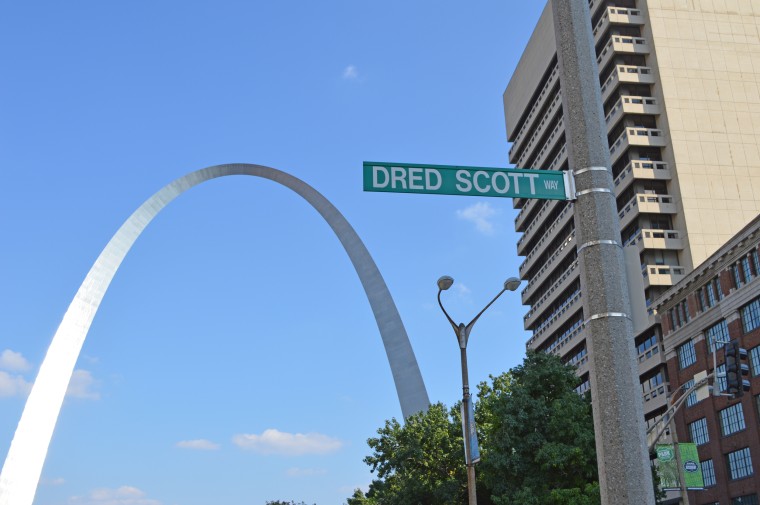In director Anne Galisky’s new documentary film exploring the question of who has the right to be an American citizen, 11-year-old Vanessa Lopez says she wants to be “either an artist, a photographer, a lawyer, or a marine biologist.” Oh, and president of the United States, too.
With her bright smile and soulful, dark brown eyes, Vanessa’s is a cheerful declaration, spoken with a child’s self-assuredness, optimism and above all, the hope that dreams are within reach. Born in the U.S., Vanessa is an American citizen.
But as the film, “14: Dred Scott, Wong Kim Ark & Vanessa Lopez” thoughtfully and even-handedly explains, Lopez’s citizenship and the citizenship of millions of children like her, born in the U.S. to undocumented parents, are being questioned in current-day challenges to the U.S. Constitution.
The Constitution’s 14th Amendment guarantees the right to anyone born here. But the tenet was not always the status quo for all Americans.

“14” explores two cases in particular which had monumental impact in defining the concept of citizenship. Dred Scott, a slave who had lived with his owner in a free state before returning to Missouri, a slave state, sued for his freedom in 1847. Like Scott, Wong Kim Ark, born in San Francisco in 1873 to Chinese immigrant parents, took his fight for liberty all the way to the Supreme Court after customs officials questioned his citizenship on his return from visiting his parents.
Amid the polarizing debate over immigration, some in Congress have sought to repeal the 14th Amendment. The U.S. House recently held a hearing on questioning the constitutional guarantee, and two Republicans have filed bills to repeal it.

The granddaughter of Ukrainian immigrants who fled Stalin, Galisky told NBC News: “I’ve always been interested in immigration and in the concept of citizenship. And especially this context of who is "we." It can get so narrowly defined sometimes.”
“14: Dred Scott, Wong Kim Ark & Vanessa Lopez” premieres in Washington, D.C. on Thursday, June 11th.
NBC News spoke recently with Galisky about her newest work, the audience she hopes to reach and the message she hopes they can take from the film.
NBC News: What drew you to this project?
Galisky: After the Senate failed to pass the Dream Act and I was very engaged in following the movement and filming them all around the country, I was thinking about what my next project would be. And weeks after the failed vote a new Congress once again introduced birthright citizenship legislation in 2011. The tone was so alarming to me and I wanted to do something about it. I really wanted descendants, so I looked for the descendants of Wonk Kim Ark and Dred and Harriet Scott and went and visited them. The documentary is really the result of several years of getting to know people and building trust. And then one year of filming and one year of production.
NBC: Why do you think citizenship guaranteed by the Constitution is being challenged?
Galisky: I think part of it is that threatening - just putting in doubt the belonging of a huge group of people - is so destructive. It’s sort of like manufacturing low self-esteem. People think, ‘Oh, I don’t matter, so my vote doesn’t matter. So why bother.’ I think that’s exactly what they want. They want people to not participate. I don’t think they actually have to be successful for it to have this very destructive effect. You see it with disenfranchising people of color all over the country in so many different ways.

NBC: The film documents historical challenges to citizenship. Can we draw a common thread between those and the current challenge?
Galisky: I think the thread that really comes through in all three of the family stories in the documentary is that ordinary people changed American history. The extraordinary courage that Dred and Harriet Scott had to sue their “owner” for their own freedom and the freedom of their daughters. These were regular people doing what they had to do for their family and in doing so changed history.
NBC: Who is your target audience for this film?
Galisky: I’m not trying to change the far right. But I’m trying to get the attention of liberal America who thinks that this might be something to be concerned about. And to remind them that we only have our rights because people fought for them, and we will only keep them if we keep fighting for them. I do think people want to be good and be inclusive ... The question is, ‘Are we going to live up to the Constitution’? We’re trying to uphold the Constitution as it is.
NBC: What do you hope people take away from this film?
Galisky: That ordinary people can change history, and they already have.
